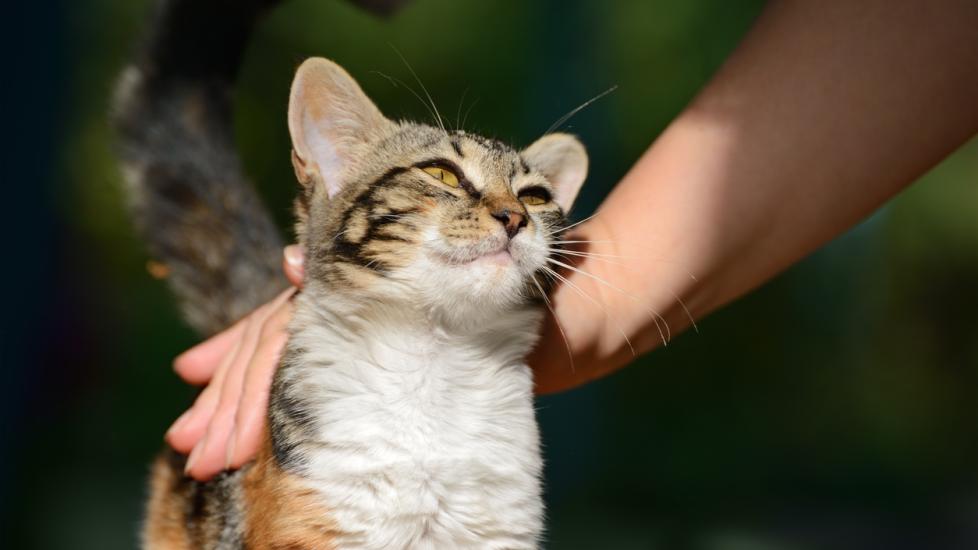 Is My Cat Happy? Unveiling the Feline State of Mind
Is My Cat Happy? Unveiling the Feline State of Mind
As a pet parent, one of your primary concerns is ensuring that your feline friend leads a joyful life. However, cats are notorious for their enigmatic expressions and behaviors, making it challenging to determine whether they’re truly content or not. By understanding the subtle cues and implementing specific care strategies, you can create an environment where your cat thrives with happiness. Let’s delve into the world of our whiskered companions to explore how to assess and enhance their well-being.
Decoding Happiness in Cats
Cats exhibit various signs that indicate their emotional state. Here are some telltale indicators of a happy kitty:
1. Eye Contact: A direct gaze often signifies trust and comfort. If your cat maintains eye contact without seeming threatened, it could be a positive sign.
2. Grooming Behavior: Overgrooming may suggest stress, but regular self-cleaning is normal and healthy. Observing this activity can give insights into your cat’s mood.
3. Playfulness: Engaging in active play sessions demonstrates energy and enjoyment. Interactive toys and scratching posts can stimulate both mental and physical stimulation.
4. Vocalizations: While meowing can mean different things, a soft trill or purr indicates pleasure and satisfaction. Listen closely to interpret your cat’s vocal language.
5. Posture: Relaxed body posture with limbs spread out suggests relaxation and security. Conversely, if your cat seems tense or hunched up, it might signal discomfort.
6. Appetite: A hearty appetite is generally associated with good health and contentment. Changes in eating habits should be monitored carefully.
7. Social Interaction: How does your cat interact with other pets and humans? Affectionate rubbing against objects or individuals shows affection and confidence.
Factors Influencing Your Cat’s Happiness
Numerous elements contribute to a cat’s overall happiness. Consider these aspects when assessing your furry companion’s welfare:
1. Environmental Enrichment: Providing multiple levels within the home (e.g., perches) allows cats to feel secure while exploring. Additionally, hiding spots promote safety and reduce anxiety.
2. Healthcare: Regular check-ups with the veterinarian ensure early detection of any illnesses that could affect your cat’s quality of life. Vaccinations, deworming treatments, and flea prevention are also essential.
3. Diet: Feeding high-quality food tailored to your cat’s nutritional needs contributes significantly to its health and well-being. Variety in diet options keeps meals interesting too!
4. Litter Box Satisfaction: The litter box itself must meet certain standards—it should be clean at all times, large enough for your cat to fit comfortably, and ideally placed in a quiet area away from traffic.
5. Training and Socialization: Positive reinforcement training builds trust between you and your cat. Early socialization helps them adapt better to new people and environments as they grow older.
Troubleshooting Unhappy Kitty Behaviors
If you suspect that something isn’t quite right with your cat’s demeanor, consider addressing these potential issues:
1. Stressors: Identify sources of stress such as changes in routine, loud noises, or introduction of another animal into the household which may require gradual adjustment periods.
2. Boredom: Boredom can lead to destructive behavior like excessive scratching or biting. Keep toys rotated so there’s always something novel for your cat to investigate.
3. Medical Issues: Unexplained behavioral changes might point towards underlying medical conditions requiring veterinary attention promptly.
4. Poor Litter Box Habits: Consistent accidents outside the litter box might stem from discomfort due to litter type or location; sometimes even subconscious punishment tactics by owners can exacerbate this problem further leading instead towards more serious health complications down the line unless addressed immediately through professional guidance.
In conclusion, recognizing what makes our beloved felines tick involves paying close attention not just physically but emotionally too – after all we want nothing less than absolute blissful harmony shared amongst ourselves alongside those four legged family members who bring us immeasurable joy each day!
